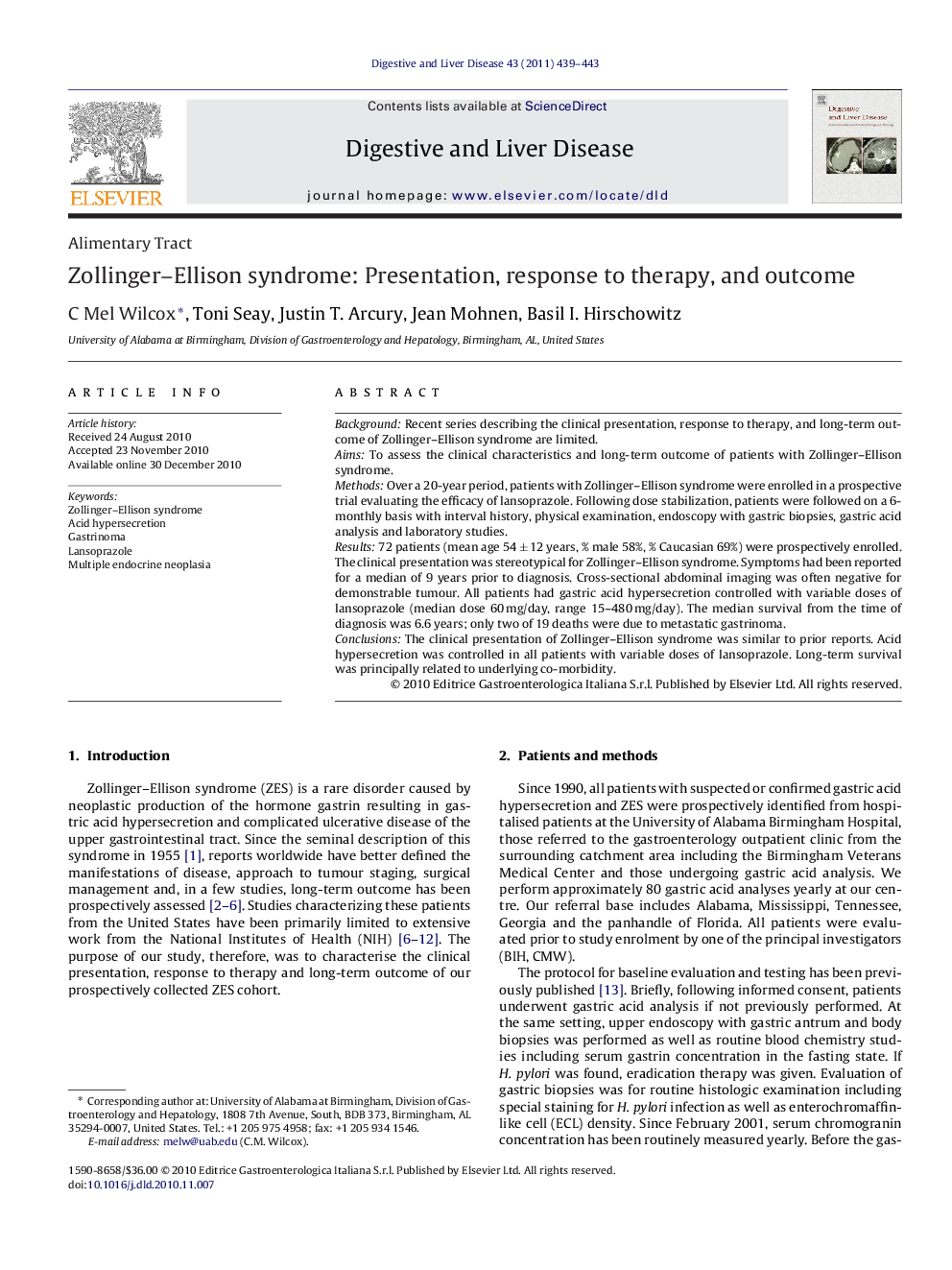| Article ID | Journal | Published Year | Pages | File Type |
|---|---|---|---|---|
| 3263092 | Digestive and Liver Disease | 2011 | 5 Pages |
BackgroundRecent series describing the clinical presentation, response to therapy, and long-term outcome of Zollinger–Ellison syndrome are limited.AimsTo assess the clinical characteristics and long-term outcome of patients with Zollinger–Ellison syndrome.MethodsOver a 20-year period, patients with Zollinger–Ellison syndrome were enrolled in a prospective trial evaluating the efficacy of lansoprazole. Following dose stabilization, patients were followed on a 6-monthly basis with interval history, physical examination, endoscopy with gastric biopsies, gastric acid analysis and laboratory studies.Results72 patients (mean age 54 ± 12 years, % male 58%, % Caucasian 69%) were prospectively enrolled. The clinical presentation was stereotypical for Zollinger–Ellison syndrome. Symptoms had been reported for a median of 9 years prior to diagnosis. Cross-sectional abdominal imaging was often negative for demonstrable tumour. All patients had gastric acid hypersecretion controlled with variable doses of lansoprazole (median dose 60 mg/day, range 15–480 mg/day). The median survival from the time of diagnosis was 6.6 years; only two of 19 deaths were due to metastatic gastrinoma.ConclusionsThe clinical presentation of Zollinger–Ellison syndrome was similar to prior reports. Acid hypersecretion was controlled in all patients with variable doses of lansoprazole. Long-term survival was principally related to underlying co-morbidity.
